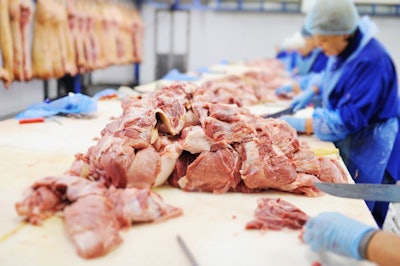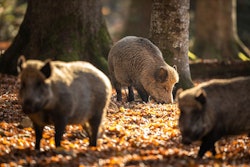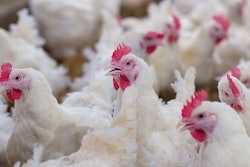
For its first business foray outside Europe, German pork producer Tönnies Group has selected a partnership with Dekon Group of China.
Through a video link last week, Tönnies Group and Dekon Group of China signed a contract sealing a joint venture agreement for a new slaughterhouse and processing plant in Sichuan province.
Managing partner of Tönnies, Clement Tönnies, described the partnership as a milestone in the international development of his company.
With Dekon’s existing business finishing around two million pigs in China, he said the new partner already has a good understanding of the Chinese market.
For the German firm’s deputy managing director of finance and internationalization, Carl Bürger, the joint venture represents a significant step in the internationalization of the Tönnies group. He added that, as global demand for protein grows, so too does the need for professional food production to European standards.
Total investment by the partners will be in the region of EUR500 million (US$594 million).
Without revealing the exact sum, the German group’s initial investment is reported as a “double-digit million amount” into the design and technical aspects. Dekon’s contribution will be construction of the new plant. This work is scheduled to begin in the coming months.
While initial capacity of the plant is set at two million pigs annually, this may be increased to as many as six million animals per year.
Chinese pork production in recovery
After its arrival in the country in 2018, African swine fever (ASF) continues to impact the Chinese pig industry. While the number of new outbreaks has dwindled, this year will see the nation’s pork production and hog slaughter hit record low levels, according to a recent U.S. Department of Agriculture Foreign Agricultural Service report.
Helping to fill the growing ASF-related gap between domestic supply and strong demand, Germany has been among the leading exporters of pork to China. However, authorities there banned all imports of pig meat from Germany as soon as the first cases of ASF was detected in a wild boar in mid-September. This — and similar measures by some other countries — has added to the volatility in global pork markets.
More on Tönnies Group
Based in Germany, Tönnies already has 29 production sites, including plants in Denmark, the United Kingdom (U.K.), France, Spain and Poland. With a workforce of around 16,500, the group generates sales of EUR6.65 billion. Core businesses are the slaughter and processing of finished pigs, sows and cattle.
In June of this year, China banned imports of pork from Tönnies. At the time, around 650 of the company’s workers at a packing plant in Germany tested positive for the coronavirus COVID-19. Within a short time, the number of positive cases at the company had risen further.
COVID-19-related temporary closures and reduced throughput at German meat plants — including Tönnies — has exacerbated the challenging pork market situation.
The resulting backlog of animals is described as “alarming” by the German pig industry association, ISN. In the latest issue of Schweine.net, ISN reports that there are 570,000 pigs on farms awaiting slaughter in Germany. Rising at a rate of 30,000-60,000 every week, these are adding to the economic and animal welfare concerns of the nation’s pig producers.

















